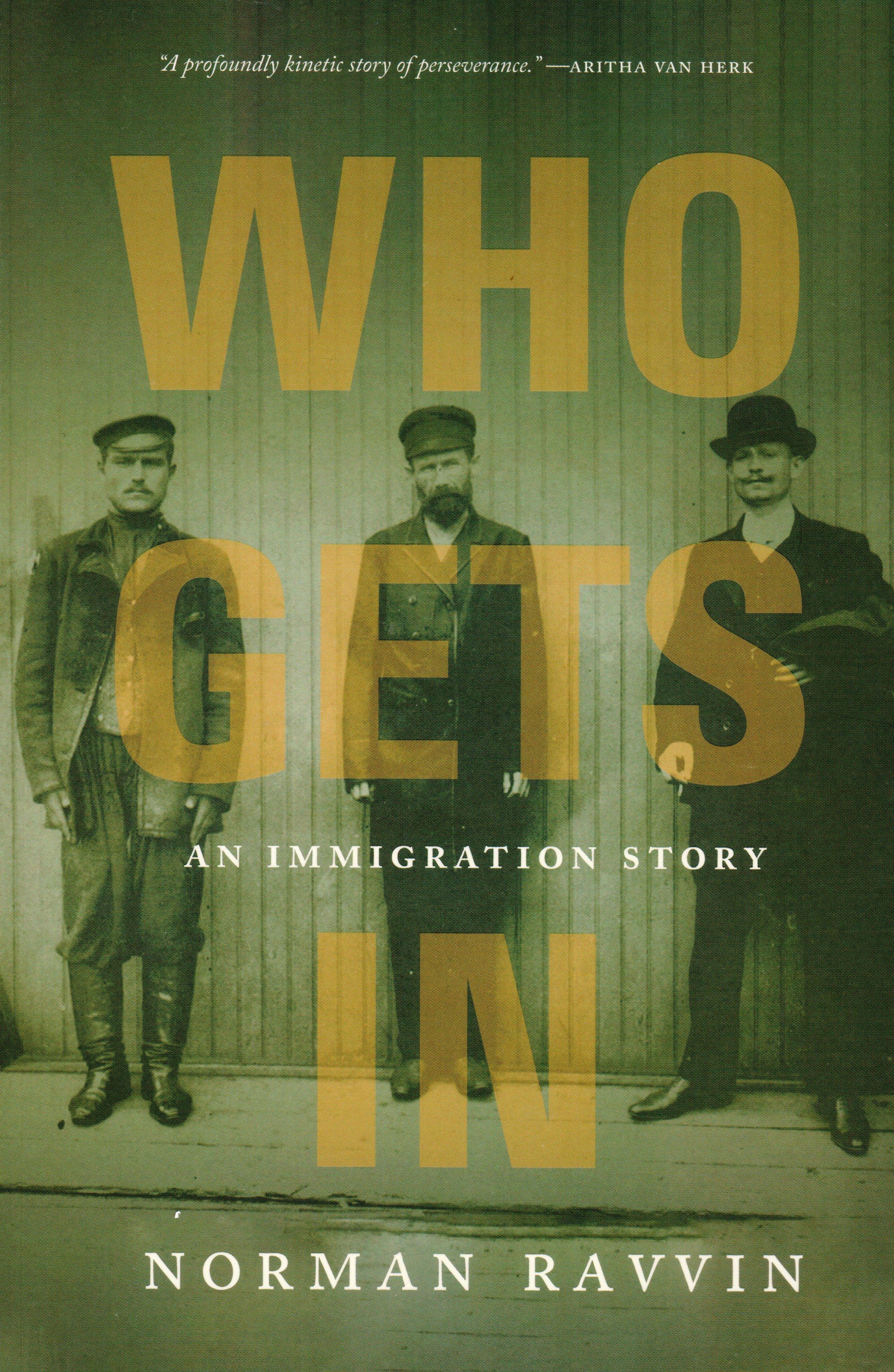Who Gets In: An Immigration Story is out now from University of Regina Press. It is a memoir focused on my maternal grandfather’s emigration from Poland in 1930, first to the Canadian west coast, then to the Saskatchewan farming towns of Dysart and Hirsch. These landed him in the Qu’Appelle Valley and then south, near the American border, at the outset of the Depression. His decision to leave his wife and children behind was based on Canadian immigration rules at the time, which officially barred almost all Jews but single men who were sponsored by a close relative in Canada. The trick, upon beginning his work in Saskatchewan as a ritual slaughterer and teacher-rabbi at Dysart, became: how to circumvent bureaucratic and governmental resistance to acquire the “permits” that would allow his family into the country. Part of his strategy was to never take no for an answer.
Who Gets In: An Immigration Story from University of Regina Press (see more here).
Norman Ravvin’s previous work includes the novels The Girl Who Stole Everything, The Joyful Child, illustrated by Melanie Boyle and lovingly printed at Gaspereau Press, and Lola by Night, published by independent publishers Cary Fagan and Bernard Kelly and later translated into Serbian. Ravvin’s early work, including his first novel, Café des Westens and his travelogue, Hidden Canada, were brought out as part of a longstanding collaborative relationship with Red Deer Press in Alberta. His fiction, non-fiction and editorial projects have won prizes in Alberta, Ontario and Quebec. A native of Calgary, his writing and interests are also formed by youthful years spent in Vancouver. For two years he taught Creative Writing at the University of New Brunswick and was fiction editor of The Fiddlehead. He lives with his family in Montreal.
Norman Ravvin’s recent novel, The Girl Who Stole Everything, is his fourth. It sets out to tell divergent stories of contemporary Poland and Vancouver, which end up crossing in a village northwest of Warsaw. In The Globe and Mail Jade Colbert called it one of the best publications of its year from independent presses.
The Girl Who Stole Everything is about Jewish wartime experience, West Coast Canadian life, Eastern Europe, but presents these from fresh points of view. Its Canadian Jewish characters are largely oblivious to their familial past, which includes an ancestral place in central Poland. Two young Vancouverites – Nadia and Simon – stumble over their links to this past, which leads them to travel to Radzanów, northwest of Warsaw. Music, film and city life propel them there, but it’s the afterlife of long-ago events that ensnares them. Contemporary Vancouver’s easy beauty is punctuated in its own way by the past, most importantly by a pawnshop owner’s murder on early-1960s Cordova Street.
Best Reads from Canada’s Small Publishers. Jade Colbert, The Globe and Mail: “Set in Vancouver and a post-Communist village outside Warsaw, Ravvin’s novel is about what was lost in the Holocaust and asks how we content with the crimes big and small that shape who we are.”
“… the opening chapter of The Girl Who Stole Everything is lyrical, magical, far away from the Holocaust, though of course suggesting it, with its mysterious discovery in an abandoned Jewish cemetery near the Polish village of Radzanów.”
The Ormsby Review, Vancouver
“Norman Ravvin’s novel, The Girl Who Stole Everything, is wonderfully written. The plot is complex and layered. Great well-drawn characters make this novel an engrossing read.”
Richard King, CBC Radio’s Let’s Go
Cordova Street
Lodz, Poland
Calgary sidewalk





